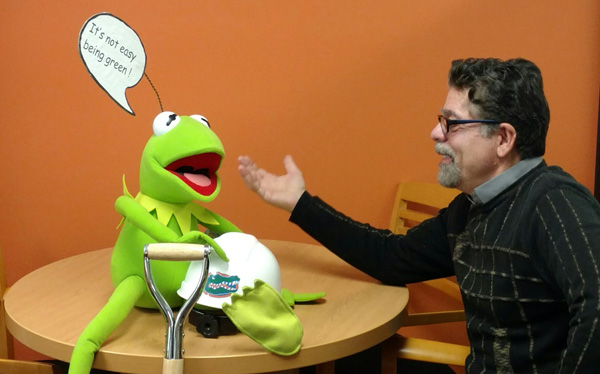11 ways the orange and blue is green, too
.jpg)
When Jessica Miller drives to the University of Florida campus, she’s not just getting to work. As part of the Neutral UF Coalition, her commute pays for trees to clean the air and energy retrofits to help low-income homeowners use less power.
Miller is one of over 100 UF faculty and staff in the program, which is the first in the nation to allow university employees to automatically offset the climate impact of their commutes through payroll deduction.
“How cool is that?” Miller says. “It makes me feel proud to be not just part of the Coalition, but part of UF.”
Members choose what to contribute each pay period. The suggested amount of $1 is enough to offset the driving done by the average UF commuter. Participants also have opportunities to get hands-on with their offsets. In a field at Little Orange Creek Preserve east of Gainesville, Miller took a tiny pine tree – one of 2,000 coalition members and other volunteers would plant that day – out of a plastic bucket and nestled it into its new home in a sandy clearing. Members aren’t required to take part in the tree plantings, but Miller appreciates that the Office of Sustainability, which created the program, gave her a chance to put her donation into action.
“You can see and feel the impact in your community,” she says.
The coalition, which helps UF toward its goal of carbon neutrality by 2025, is just one of the efforts promoting sustainability on campus. Here are 10 more ways the orange and blue is also green.
- We medaled in biking: UF recently earned silver level status as a “Bicycle Friendly University” from the League of American Bicyclists. The university offers 13 miles of bike lanes, 22 self-service bike repair stations, a student bike rental program and other ways to help students and staff choose sustainable transportation options.
- You can make your spring break sustainable: Some UF students spent their spring break volunteering at a nonprofit farm providing organic produce to cancer patients, preserving Cumberland Island National Seashore, and working on an agroecology farm in Costa Rica through Florida Alternative Breaks. Others headed to Florida’s Nature Coast for a field course on sea-level rise and coastal ecology.
- We <3 trees: For four years in a row, UF has been recognized as a Tree Campus USA by the Arbor Day Foundation.
- You can graduate green: Through the Green Gator Graduation Cord Challenge, students can earn graduation cords — worn with their cap and gown at the commencement ceremony — showing their commitment. Taking related courses, volunteering, attending events and doing research can all earn points toward green cords.
- You can eat green: Campus restaurants have been foam-free since 2011, and Gator Dining offers reusable drink and to-go containers. In the dining hall, labels denote local and sustainable food choices.
- Our sports are sustainable: Everything available for purchase in the stadium is either compostable or recyclable, and has been since 2013. This summer, UF will hosts a Collegiate Sports Sustainability Summit for like-minded schools nationwide.
- We give a Kermit trophy: In addition to the annual Champions for Change Awards, which recognize accomplishments on campus and beyond, UF’s Department of Planning, Design and Construction bestows a Kermit the Frog “It ain’t easy being green” trophy on the project manager who racks up the most LEED building points. UF has more than 60 certified LEED buildings.

Alisson Clark Author
Lyon Duong/UF Photography Photography
April 11, 2017
.jpg)
